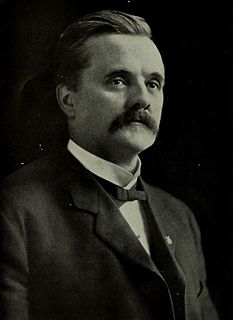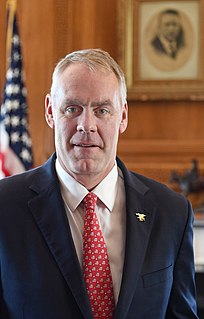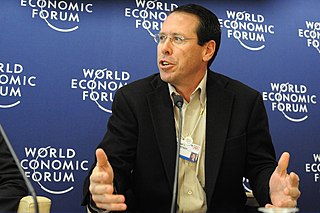A Quote by Andrew Johnson
The homestead policy was established only after long and earnest resistance; experience proves its wisdom. The lands in the hands of industrious settlers, whose labor creates wealth and contributes to the public resources, are worth more to the United States than if they had been reserved as a solitude for future purchasers.
Related Quotes
We have no paupers ... The great mass of our [United States] population is of laborers; our rich, who can live without labor, either manual or professional, being few, and of moderate wealth. Most of the laboring class possess property, cultivate their own lands, have families, and from the demand for their labor are enabled to exact from the rich and the competent such prices as enable them to be fed abundantly, clothed above mere decency, to labor moderately and raise their families. ... Can any condition of society be more desirable than this?
Imperialism is the factor in American policy, not just since 1898, but in fact long before it when we were expanding across this continent and taking away Indian lands in order to enlarge the territory of the United States. We have been an imperial power and an expansionist power for a very long time.
For decades, conventional wisdom in the United States held that it was only a matter of time before China would become more liberal, first economically and then politically. We could not have been more wrong - a miscalculation that stands as the greatest failure of U.S. foreign policy since the 1930s.
Meanwhile, the U.S. debt remains, as it has been since 1790, a war debt; the United States continues to spend more on its military than do all other nations on earth put together, and military expenditures are not only the basis of the government's industrial policy; they also take up such a huge proportion of the budget that by many estimations, were it not for them, the United States would not run a deficit at all.
I have looked at public opinion polls in France in the late 1940s and early 1950s during the height of Marshall Plan aid. They had a very negative attitude towards the United States then. There were negative attitudes towards the United States because of Vietnam. There were negative attitudes about the United States when Reagan wanted to deploy intermediate range ballistic missiles. I don't think the president should base his foreign policy on American public opinion polls, let alone foreign public opinion polls.
Imperialism creates the illusion of wealth as far as the masses are concerned. It usually serves to hide the fact that the ruling classes are gobbling up the natural resources of the home territory in an improvident manner and are otherwise utilizing the national wealth largely for their own purposes. Eventually the general public is called upon to pay for all of this, frequently after the military machine can no longer maintain external aggression.
Only by establishing military supremacy were the European and North American colonizers able to eliminate the crafts and industries of Third World peoples, control their markets, extort tribute, undermine their cultures, destroy their villages, steal their lands and natural resources, enslave their labor, and accumulate vast wealth.

































